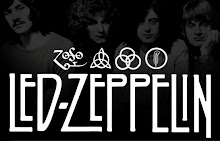American Literary Movements
They are:
Plantation, Tradition,Calvinism,Puritanism in New England,Captivity Narratives,Realism
Concord Chronology,Romance and Novel,Conversion Narratives,Salem Witch Trials,Covenant Theology,Sentimentalism,Domestic Fiction,Sermon,Early American Novel,Slave Narratives,Southwestern Humor,Transcendentalism
Meditation,Travel Narratives,Native American Literature and Naturalism.
1. Calvinism - human beings were creatures of fellowship(need to identify) and that Church and State, satisfied a human need for this type of grouping. Individuals must cultivate this awareness of deity through examination of the seeds of divinity within each person as well as through contemplation of and reflection on the world. Sin, for Calvin, is the opposite of knowing God; and a corrupt reason and will can prevent this knowledge.
The Five Points of Calvinism (often remembered through the acronym T U L I P)
1. Total depravity. Man is naturally unable to exercise free will, since through Adam's fall he has suffered hereditary corruption. Evil was a palpable presence in the Puritans' world, and it was often symbolized by the struggle between light and darkness. In this system, it was impossible to find disillusioned Puritans, for they believed that there was no horror that man could not commit.
2. Unconditional election. Election manifests itself through God's wisdom to elect those to be saved, despite their inability to perform saving works. Only a chosen few are so elected, and simply being a church member did not necessarily signify election.
3. Limited atonement. Man's hereditary corruption is partially atoned for by Christ, and this atonement is provided to the elect through the Holy Spirit. This limited atonement gives them the power to attempt to obey God's will as revealed through the Bible.
4. Irresistible and prevenient grace, made only to the elect. Grace was a "motion of the heart" that was God's gift to the elect-unconditional, irresistible, and inexorable. It came to each directly and could not be taken away. It promised "ecstatic intimacy with the divine" or "soul liberty." When Winthrop talks about liberty, this is the sort that he counts on his audience recalling.
5. Perseverance of saints. Those who are predetermined as elect inevitably persevere in the path of holiness.
Example of Calvinist poetry.
Jonathan Edwards
What are we in the hands of the great God?It was in vain you set up thorn and briarIn battle array against the fireAnd treason crackling in your blood;For the wild thorns grow tameAnd will do nothing to oppose the flame;Your lacerations tell the losing gameYou play against a sickness past your cure. How will the hands be strong? How will the heart endure?
1. Find a passage from the poem that expresses its tone. Is the tone exciting, enthralling, dark, angry, insignificant, sad, or ? Provide evidence by choosing three specific words that support your choice of tone. Tell me why you chose those words.
2. This poem is showered with metaphor. Choose three passages; for example, " you set up thorn," meaning something happened that caused you pain. A thorn pricks connotating pain.
Write three of your own.
3. Why do you think Calvinism happened? It was a long time ago and maybe people were afraid of things they yet didn't understand; earthquakes, floods, etc.. what do you think? Do you like the poem? Does it relate in any way to life today? If so, how?
Monday, December 6, 2010
Subscribe to:
Post Comments (Atom)

No comments:
Post a Comment